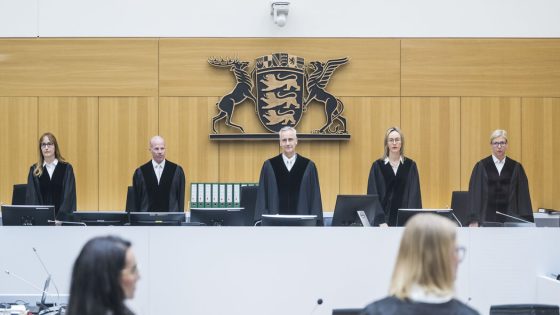The U.S. Supreme Court | Al Drago/Getty Images
I have never met anyone who I believed to be intelligent who was also humorless. When comedian Nate Bargatze took the stage last week at Gainbridge Fieldhouse in Indianapolis he spent a few moments making sure the crowd knew he was not an educated man.
Bargatze is intelligent though. And he’s as funny they come.
In contrast, the Supreme Court of the United States was once regarded as the sage, learned body, epitomizing intelligence, credibility and thoughtfulness. This once esteemed tribunal personified its “supremacy” for rational, unhumorous reasons. However, as of Monday, July 1, 2024, its self-desecration is complete. It has now become a laughingstock.
The conservative majority of the court has twisted itself into knots to help Donald Trump with the absurdity that he should have some immunity from prosecution for his criminal acts. The mantra of “no man is above the law” ended this week in America.
The 6-3 Trump v. United States ruling produced dissenting language in a tone unheard of in the court’s storied history. Justice Sonia Sotomayor wrote on behalf of the minority, “With fear for our democracy, I dissent.”
The cloud of this debacle will feel like a diversion soon though, because there’s so much more.
Chevron and more
Let’s discuss nitrous oxide. You’ve likely heard of it. It’s what dentists give patients to relax them before needles and drills are used to bludgeon their mouths. It’s laughing gas. It’s fun. And it should never be confused with nitrogen oxides, which is what the Environmental Protection Agency regulates to control pollution.
Justice Neil Gorsuch famously mistook one for the other, five times, in his Ohio v. EPA ruling on Thursday. Then on Friday, SCOTUS ruled that courts are better positioned to do what regulatory experts have broadly done since 1984. In Loper Bright v. Raimondo, the supremes ruled that courts are more suited to decide anything and everything, scientific and complicated, than actual experts. Experts like those who know the difference between pollutants and laughing gas.
The 1984 decision, Chevron v. Natural Resources Defense Council, established what has become known as the Chevron deference. The late Justice Antonin Scalia was a notorious supporter of the deference, because it provided a dependable “background rule of law against which Congress can legislate.” He believed Congress wanted agencies, or subject matter experts, to exercise discretion on the implementation of their laws. I’ve been a regulator and a legislative consultant, and I know this to be historically true.
Scalia has been revered by the right ad nauseam, as the smartest, most supreme of all supremes. Today’s right wing, however, apparently thinks it knows better, while simultaneously proving it doesn’t.
Fun fact, Scalia also had a grand reputation for his sense of humor. Go figure.
Experience matters
When I was a regulator, my agency had a staff of economists, engineers and accountants who knew things politicians didn’t. They made sense of what was fact, what was real, and most importantly, what was reasonable before the political appointees decided anything. Rulings were then made in the “public interest.” That term drives the regulatory world. Decisions aren’t simply made in favor of the best lawyering, or legal wrangling on behalf of one interest or the other. They are also made with an eye toward how the decision would impact society.
Courts regularly reviewed those decisions, most often to decide whether an agency had been “reasonable.” The system worked. There wasn’t any reason to change it.
There are two important things that ended with the killing of the Chevron deference. First, serving the public interest will no longer be the driving reason for every regulatory decision. Second, what serves as reasonable can be unabashedly partisan, biased or corrupt. The robe-wearers will rule however they’d like, often showing their plan before they even take the bench.
The best example of our future is the recent case involving the abortion medication, mifepristone. Anti-abortion U.S. District Judge Matthew Kacsmaryk ruled that the drug should be banned last year, overruling the Food and Drug Administration’s approval of it two decades earlier. SCOTUS overturned his decision a few weeks ago stating that the original complainants had no standing to bring the case. With the Chevron deference eliminated, the next time SCOTUS hears a case banning mifepristone, it will almost certainly be upheld.
Write that one down in ink.
As Bargatze prepared to take the stage Wednesday night, the crowd was treated to a small clip of his role as General George Washington in a Saturday Night Live skit. In it, Washington is inspiring troops during the American Revolution with the hilarious and ridiculous things we will do with our freedom.
SCOTUS is performing that skit in real life today. But it’s not funny. Not one bit.
Indiana Capital Chronicle is part of States Newsroom, a nonprofit news network supported by grants and a coalition of donors as a 501c(3) public charity. Indiana Capital Chronicle maintains editorial independence. Contact Editor Niki Kelly for questions: [email protected]. Follow Indiana Capital Chronicle on Facebook and X.
The post A SCOTUS ruling on laughing gas abandons precedent for the absurd and the partisan appeared first on Michigan Advance.
Source Agencies

